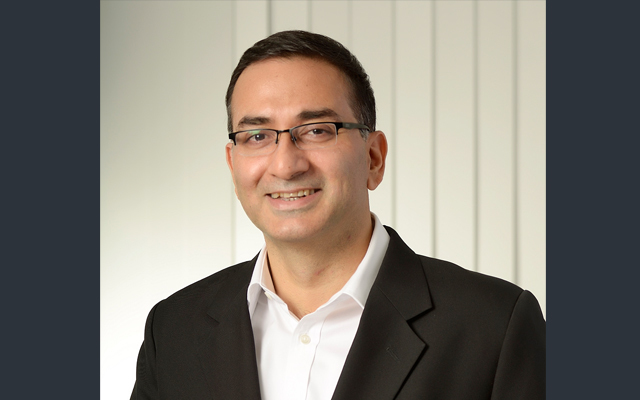A 2021 survey by Dettol showed that 77 per cent of respondents are concerned about flying. As international borders reopen, upholding strict hygiene protocols in airports and airlines, and enhancing personal hygiene are essential, says Sumeet Vohra, president, Southeast Asia, Japan, and South Korea, Reckitt





















Hotel investment volume in this region is also projected to reach US$1.5 billion in 2022, a 86 per cent increase as compared to the year before.
Furthermore, South-east Asia has received over 580,000 international visitors in the first two months of 2022 alone, highlighting the revival of travel tourism.
But a question remains – as travel tourism picks up, how can the aviation and tourism industries continue to uphold strong hygiene standards to ensure everyone is able to travel safely?
Hygiene: a critical aspect of travel
Given the ongoing threat of infectious diseases that are likely to arise from emerging and existing microorganisms, implementing targeted hygiene protocols in airports and airlines, and emphasising travellers’ personal hygiene are essential. This is so as viral diseases including Monkeypox and Hand, Foot, and Mouth disease (HFMD) continue to pose a threat to the health and well-being of people.
Countries in this region are also seeing thousands of Covid-19 cases every week, as new variants emerge.
While Asia-Pacific remains a highly attractive destination for travellers in the international arena, the health and hygiene infrastructure of certain areas remains underdeveloped.
The volatility of the world we live in now, and the presence of these hygiene gaps reinforce the continuing importance for key stakeholders in the travel and aviation industries to uphold best hygiene practices to ensure that everyone can live, work and travel safely. According to a 2021 survey by Dettol across a number of regions, 77 per cent of travellers were concerned about flying due to reservations around cleanliness, and 79 per cent expect strict hygiene protocols in airlines. In another study, 40 per cent of individuals ranked hygiene as an essential factor in deciding which airline to travel in after Covid-19.
Building a stronger and healthier world
Facilitating stakeholder collaborations: As international borders open and people continue to make travelling a key priority, airports and airlines serve as critical touchpoints where viral diseases are contained and controlled. But this requires more than just a one-man effort. Multi-sectoral collaboration is paramount.
For example, during the height of Covid-19, Dettol Pro Solutions, which is popular for its science-backed hygiene solutions, partnered with prominent airlines and tourism leaders such as British Airways and Delta to boost hygiene and disinfection measures. These collaborations are crucial in boosting passengers’ confidence at a time of uncertainty, as 79 per cent of respondents cited that they are more likely to choose British Airways over other airlines after seeing this collaboration.
Such cross-sector collaborations are crucial in helping the travel industry to build customer trust quickly. Trust goes beyond just providing information. It takes a long time to develop, especially since consumer habits are always changing. It also requires consistent efforts from brands, but this can be strengthened and expedited by embarking on partnerships with stakeholders that consumers already trust.
While hygiene preparedness can be enhanced through improved coordination, communication and information-sharing between internal and external stakeholders, airports and airlines should also explore partnerships with solutions providers like technology and robotic companies to create autonomous commercial cleaning systems. In past years, digitalisation has undoubtedly transformed industries worldwide, and this includes the aviation and tourism industries. Adopting new technologies are beneficial, as it helps to replace manual tasks and circumvent the shortage of manpower by making cleaning more efficient and cost-effective.
Providing targeted hygiene as an efficient and sustainable option: Besides stakeholder collaboration, it is also important for airlines and airports to adopt a targeted hygiene approach to ensure the efficacy and sustainability of measures.
Known as a risk-based approach where hygiene interventions are put into place when and where they are most effective, targeted hygiene includes frequent sanitisation of high touchpoint surfaces, and ensuring that passengers are wearing face masks. Since it focuses on key areas to break the potential chain of infection, targeted hygiene avoids wastage of valuable resources and manpower.
For example, at COP26 last year, one such initiative based on the targeted hygiene approach was implemented to protect all attendees. These protocols helped to reduce the spread of illness-causing germs across 50,000 hotspots in the large conference space.
Towards a new era in travel and tourism
Today, the world is gradually (but surely) finding its footing back in a post-Covid era. People are venturing out to visit new places and travel tourism is back on track. To ensure that everyone is able to live, work and travel safely in this new normal, following proper hygiene methods and upholding personal cleanliness to reduce the spread of infections is paramount.
As international borders open and travel picks up in the region, it will take the continued efforts of key stakeholders to strengthen hygiene standards and ensure that the aviation and travel industries are ready to tackle any new challenges, so that passengers are always able to travel safely. Only by doing so can ASEAN become a desired tourist destination.